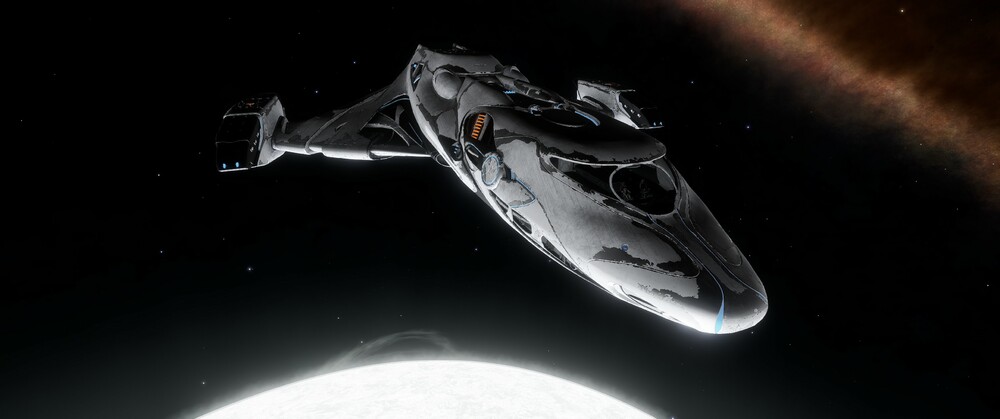 | Cmdr Cetacean1 | ||
| Role Explorer / Peacekeeper | Registered ship name Yorktown | Credit balance - | |
| Rank Elite II | Registered ship ID Federal Corvette CV-10 | Overall assets - | |
| Power Denton Patreus | |||
Ship details
Name
Whitestar
Ship ident
CE-21E
Type
Imperial Clipper
Role
High-Performance Explorer
Description
Improvements in shield, engine, and power technology following advancements from recovered guardian technology lead to a redesign, and the ship was re-envisioned as a combat ship again. Knowing it would only have a short window to strike enemy ships, this time it was armed with four gimbal mounted fragment cannons. They wouldn't hit with all their potential firepower, and needed to be used close in, but even with chaff they wouldn't fully miss at that range either. With the success of this design as a fast combat vessel was given it's original name Whitestar again, and used for fast strikes and pirate interdictions.
However the weak shields came to wear on it in this role too, and it was outfitted as a high-performance explorer. Weapons were stripped and shields reduced to lower jump mass, but the high-performance combat engines were retained. It was fitted with an SRV bay instead of the interdictor, and given a small supply of repair limpets, an AFMU, and surface scanner. Fully loaded it has a lower jump range for an explorer just topping 47 LY, but a respectable fuel range of 680 LY, and sublight performance that could challenge a Viper, 480 m/s full throttle, and 590 m/s boost with incredible agility.
While it wasn't the first choice for the mission, the Whitestar became the explorer ship to undertake the first 44,000 LY trip to Colonia and back following the crash and repair of the Flying Dutchman, and reassignment to the Constellation.
Despite a shorter jump range it proved to be an excellent explorer, and has been responsible for mapping hundreds of new star systems, and collecting samples for over 200 new lifeforms from the trip to and from Colonia alone. It's class 7 fuel scoop allows it to quickly replenish fuel reserves, and it's nimble response and high speed makes it a joy to fly over other explorers, and allows faster surface scouting. The Whitestar's main downside, other than a shorter jump range, is it's large size can make finding a suitable spot to land on a planet a bit harder than a Phantom, but still much easier than an Anaconda.
